The educational materials listed on this page are about Composting.
Many farms, especially organic farms, utilize compost for fertility, but what exactly is composting? Compost soil is made up of green waste (e.g. grass clippings) and brown waste (e.g. dried leaves) that provide nitrogen and carbon, respectively. With the right ratio of each, microbes in the compost begin to break down the material, turning it into organic matter. Composting methods depend on what type of farming is being done and at what scale. Other forms of composting include vermicomposting, or worm composting, which uses red worm composting to produce compost. Specialty crop farmers can make mushroom compost from the waste of mushrooms, and livestock farmers often compost manure over time. Compost making requires time, careful maintenance and the correct ratio of input materials. Key practices include nutrient cycling, nutrient management, organic fertilizers, composting, compost extracts, earthworms, organic matter, soil quality/health, soil stabilization.
Building Soils for Better Crops will help you understand soil structure, soil fertility and overall soil management, including composting to increase organic matter. Diversifying Cropping Systems can be useful in identifying practices that enhance diversity on farms, such as manure management for livestock operations. The Small Ruminant Toolbox guides producers who are managing small livestock enterprises and managing composted manure in cropping systems.
Showing 1-10 of 15 results
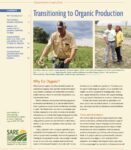
Transitioning to Organic Production
Transitioning to Organic Production lays out many promising conversion strategies, covering typical organic farming production practices, innovative marketing ideas and federal standards for certified organic crop production.

Soil Health Principles and Practices Videos
Experienced farmers and Sustainable Agriculture Research and Education (SARE) provide information on managing and improving soil health. Farmers discuss practices such as cover cropping, and using mulch and compost to improve soil health.
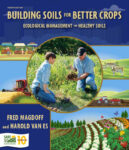
Building Soils for Better Crops
The fourth edition of Building Soils for Better Crops—enhanced and expanded—explains how to use ecological principles to build soil health and boost fertility, yields and overall sustainability.
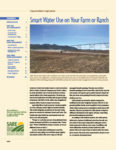
Smart Water Use on Your Farm or Ranch
As producers throughout the nation grow increasingly concerned about water scarcity, farmers, ranchers and agricultural educators are beginning to explore new, conservation-oriented approaches to water use.
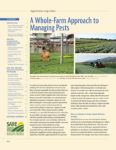
A Whole Farm Approach to Managing Pests
This 16-page bulletin helps producers—and the educators who work with them—use ecological principles across the entire farm to control pests.

What is Soil Health?
Soil health plays an essential role in raising healthy, productive crops and livestock. With this interactive infographic, learn how practices such as cover crops, no-till, crop rotation and the integration of livestock work in concert to improve soil health.
Is Fish Waste Compost Worth the Mess and Effort?
A South Carolina farmer discusses the results of using fish waste compost in vegetable production.
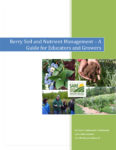
Berry Soil and Nutrient Management Guide for Educators and Growers
This manual has been designed as a comprehensive guide for educators and commercial berry growers interested in improving berry crop soil and nutrient management.

The Small Ruminant Toolbox
This Small Ruminant Toolbox is a large collection of publications, presentations and other resources that will be helpful to small ruminant producers and educators.
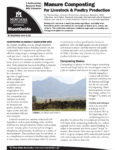
Manure Composting for Livestock and Poultry Production
This Montana State University publication addresses medium- to large-scale composting as a management option for animal producers in cold, semi-arid environments.